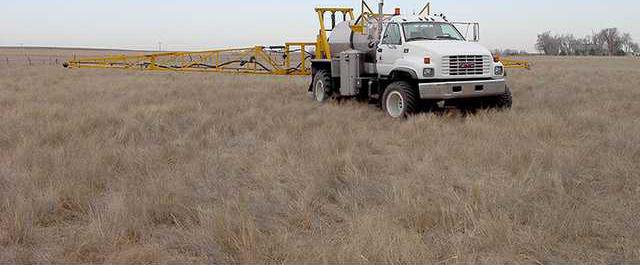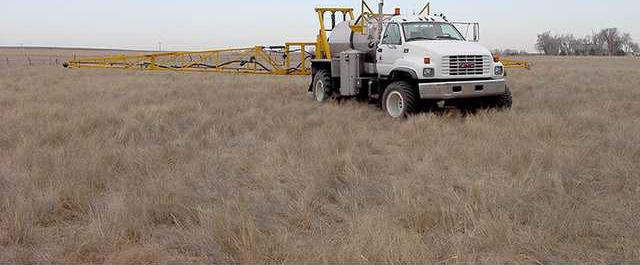Noxious weeds are one of the greatest threats to the Kansas environment, but strong local efforts to control them are a tremendous help, Barton County Road and Bridge Director Dale Phillips told the County Commission Monday morning.
These weeds “displace native plant species, interfere with the production of agricultural crops, increase erosion, destroy wildlife habitat and decrease property values,” said Phillips, who also oversees the county’s Noxious Weeds Department.
The Kansas Department of Agriculture is responsible for laws aiding in the control and management of noxious and invasive weeds in Kansas. And, the KDA requires Kansas counties to have a noxious weeds department and to submit an annual weed eradication progress report.
This update paints a good picture of Barton County and its efforts, Phillips said.
“Credit goes to the crews, farmers and taxpayers for their support,” he said. “It takes everyone in Barton County to eliminate noxious weeds.”
The report tracks such things as the county’s financial commitment, time spent spraying and the number of acres treated, he said. Since the county also sells herbicides to residents, revenue is also measured.
In the end, the department operates in the black, thanks to chemical sales. In fact, there was money carried over from last year to this year.
Phillips said the original budget for the Noxious Weeds Department was based on a mill levy of .935 mills and set at $874,710. However, after factoring in 2016 chemical sales, total revenue for the department was $891,950.76.
After expenditures of $840,281.98, including a $60,000 transfer to the capital outlay fund, there was a surplus, he said. A total of $34,428.02 was carried over to 2017.
Barton County provides noxious weed applications to cities, townships, the state, private landowners and county lands. Non-noxious weed control include chemical mowing and bare ground applications for the county as well as brush control measures for townships.
The report also notes there was an estimated 78,590 acres of treated noxious weeds in Barton County. That includes private, county, township, state and city land.
Weed varieties included bur ragweed, field bindweed, Johnson grass and musk thistle.
Battling noxious weeds serious business





